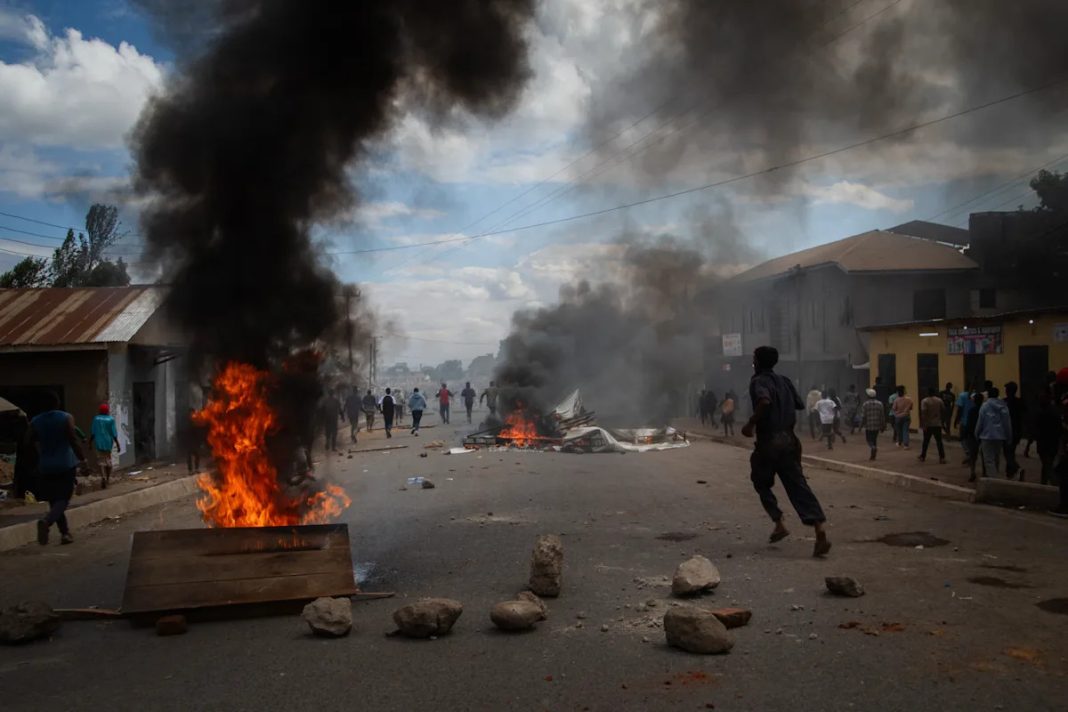Last week’s Tanzania elections failed to comply with democratic standards, says the African Union (AU), adding to mounting international pressure on President Samia Suluhu Hassan’s administration over the deadly vote.
The AU’s election monitoring arm – which sent a team of 72 observers to Tanzania and Zanzibar for the October 29 election – on Wednesday pointed to ballot stuffing, the government-imposed internet blackout, allegations of excessive military force, and politically-motivated abductions as “compromising election integrity”.
The election “did not comply with AU principles, normative frameworks, and other international obligations and standards for democratic elections”, the mission’s report concluded, adding that the environment was “not conducive to peaceful conduct and acceptance of electoral outcomes”.
Protesters poured into the streets of Dar es Salaam and other cities following the election, where they faced police violence, clouds of tear gas and limited internet access.
The country’s main opposition party, Chadema, has since claimed hundreds of people were killed, a figure the government has denied.
Videos reviewed by Al Jazeera show dozens of bodies, including of people shot in the head, protesters with bloodied faces, and security forces firing guns in the streets.
The AU’s mission urged Tanzanian authorities to exercise restraint and pursue “thorough investigations” into violence against protesters.
“Tanzania should prioritise electoral and political reforms to address the root causes of its democratic and electoral challenges witnessed ahead of, during, and after the 2025 General Elections,” the report said.
The AU report came amid another rare rebuke from the Southern African Development Community (SADC) earlier this week, which detailed violence, censorship and “general intimidation” of the public and opposition figures.
Overall, “voters could not express their democratic will”, SADC said in a preliminary report on Monday, adding that the elections “fell short” of SADC principles.
Hassan swept nearly 98 percent of the vote after her two main competitors were barred from competing. Chadema was disqualified in April after refusing to sign an electoral code of conduct, while the country’s second-biggest party, ACT-Wazalendo, was excluded after an objection from the attorney general.
Chadema’s leader Tundu Lissu separately faces a treason trial after calling for election reforms.
SADC chronicled such events directly, writing that the disqualifications had created an “uneven political playing field” that undermined the democratic process.
The last time SADC openly criticised an African election process was during Zimbabwe’s election in 2023. It has since observed a handful of other elections, including in Malawi, Botswana, South Africa, Madagascar and the Democratic Republic of the Congo.
In her first comments after being sworn in, Hassan appeared to blame foreigners for the protests, saying “it was not a surprise that those arrested were from other countries”, according to a translation by the Associated Press.
Hassan first took power in 2021 after the unexpected death of her predecessor, John Magufuli.
Since then, local and international watchdogs have repeatedly raised the alarm over her administration’s alleged campaign of forced disappearances, torture and assault of critics, as well as widespread media repression.
In June, a panel of United Nations experts said they had documented more than 200 disappearances in the country since 2019.

